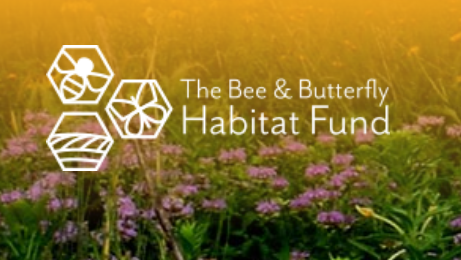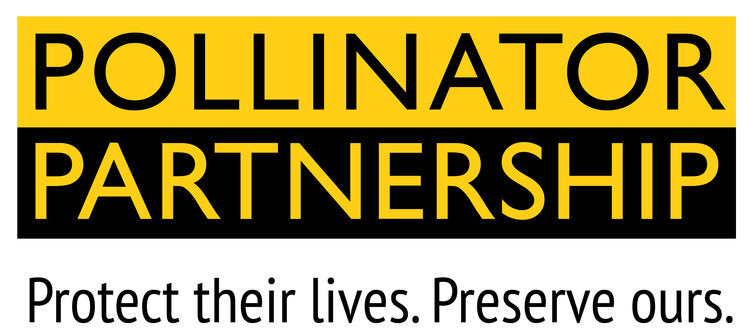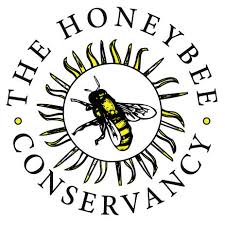Pollinator Health
Supporting pollinators in the face of climate change is critical and will require action at both national and local levels. Each year, Bee Balm donates 5% of annual profits to an organization working to restore and protect pollinator populations.

2026: Grow Native Massachusetts
Grow Native Massachusetts is a MA-based nonprofit dedicated to promoting native plant landscaping and protecting biodiversity across the Commonwealth. They provide education, resources, and advocacy to help individuals, communities, and land managers create pollinator-friendly habitats using native plants. Through workshops, educational programs, native plant sales, and their Massachusetts Pollinator Network program, Grow Native Massachusetts connects communities working to expand native pollinator habitat, reduce pesticide use, and support the diverse insects, birds, and wildlife that depend on native plant ecosystems.

2025: Outdoor Alliance
Outdoor Alliance unites the voices of outdoors enthusiasts to conserve America’s public lands and waters. Public land and conservation policy is complex, but Outdoor Alliance knows how to effect meaningful change through building relationships with decision makers and activists. Some of their work includes preserving trails, working collaboratively to create new legislation, and empowering others through education and opportunity to protect the lands we love. We're excited to support their mission to protect the outdoors for humans and pollinators alike!

2024: Pollinator Pathway
Pollinator Pathway is a grassroots organization that has established habitats for pollinators in over 300 towns in 11 states, organized by volunteers from town conservation organizations. Pollinator Pathways are a series of continuous corridors in urban settings that provide habitats and food sources for bees, butterflies, hummingbirds and other pollinating insects and wildlife. Projects aim to connect properties no further apart than 750 meters, the range of most native bees. They also offer a plethora of other resources for planting native species in your yard, learning about pesticides in your neighborhood, and more!

2023: The Xerces Society
The Xerces Society for Invertebrate Conservation is an international nonprofit organization that protects the natural world through the conservation of invertebrates and their habitats. They are a science-based conservation organization that works with scientists, land managers, educators, policymakers, farmers, and communities to make meaningful long-term conservation a reality. Notable areas of focus include reducing pesticide use and impacts, protecting endangered pollinator species, monitoring populations, and educating citizens on how to take action to protect pollinators.

2022: The Bee and Butterfly Habitat Fund
Nutrition is the most basic and fundamental requirement for healthy pollinator populations. The Bee and Butterfly Habitat Fund works with private, public and corporate lands through the Seed A Legacy program by providing free, or heavily discounted, seed mixes that quickly establish robust plant life for monarch butterflies, honey bees and other native pollinators. Giving these species access to abundant, diverse and high-quality resources helps them live longer, healthier, and more productive lives. With programs in eleven mid-Western states, the Bee and Butterfly Habitat Fund is making an impact where industrial farming has most heavily destroyed homes and food for pollinators.

2021: The Pollinator Partnership
The Pollinator Partnership, or P2, is a 501 non-profit organization that works to protect the health of managed and native pollinating animals that are vital to wildland and agricultural ecosystems. Though based in California, P2 is working to protect pollinators and their habitats with projects across North America and beyond. Signature initiatives include the NAPPC (North American Pollinator Protection Campaign), National Pollinator Week, and the Ecoregional Planting Guides.

2020: Mass Audubon
Mass Audubon protects more than 38,000 acres of land throughout Massachusetts, saving birds and other wildlife, and making nature accessible to all. Mass Audubon is a nationally recognized environmental education leader, offering thousands of camp, school, and adult programs that engage 225,000 adults and children. They conduct conservation research, actively monitor land, and promote native plant growth to preserve the natural heritage of Massachusetts.
Mass Audubon takes a holistic approach to protecting the natural environment of our state. We love the emphasis on education and getting both children and adults outdoors to inspire environmental stewards of all ages.

2019: The Honeybee Conservancy
The Honeybee Conservancy is a 501c3 non-profit organization that works to help the bees while increasing access to organic, sustainable food in under-served communities - from right here at home to as far away as the impoverished nation of Haiti. The Honeybee Conservancy sponsors hives in gardens and urban farms that are growing fresh produce for schools, soup kitchens, senior citizen centers, and low income neighborhoods. They also place bee sanctuaries in local gardens, urban farms and green spaces where they can serve as a valuable environmental and educational resource for the public.
We love this multifaceted approach to pollinator protection that unites bees with underserved populations for a mutually beneficial outcome. Through outreach, education, and research, The Honeybee Conservancy is putting food on tables and engaging the public in food security.
